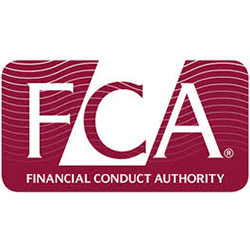Compliance
UK Regulator Moves To Ease Market Entry For New Asset Managers

The announcement comes at a time when the UK's asset managers are steering their businesses through a complex regulatory environment.
The UK’s financial services watchdog will set up a new hub next
month to ease entry to market for budding asset managers,
helping them navigate an already complex regulatory regime that
is set to be bolstered by a raft of incoming rules.
Last year, the Financial
Conduct Authority approved 204 new asset managers, and has
since learned that “some of those businesses find it difficult to
navigate regulation,” said Megan Butler, executive director of
supervision - investment, wholesale and specialist at the
FCA.
The regulator’s contact centre takes up to 1,200 pre-and
post-application calls a month from investment managers seeking
clarification on various compliance issues, she added.
“We do see it is an imperative that the best investment managers
aren’t put off of operating in the UK by avoidable barriers to
entry,” Butler said. “So… the FCA is setting up an asset
management authorisation hub to support new entrants to the
market.”
The so-called "phase one" of the hub will launch next in October,
and will see the FCA offer new players pre-application meetings,
“dedicated” case officers and access to an online portal. Once
authorised, firms will more easily be able to directly liaise
with supervisors, Butler said.
Next year, the FCA intends to extend the hub’s offering to
include quarterly surgeries and an online booking centre for
pre-application meetings.
Regulatory red tape
Plans for the new hub come as UK asset management houses are
readying themselves for a wave of new regulations, such as
MiFID II, GDPR and the FCA’s Senior Managers
Regime, all of which will hike compliance costs and increase
regulatory pressures once they take effect next year. A concern
has been that while these regulations can be defended - depending
on one's point of view - as ways to protect the end-investor -
they also raise barriers to entry into the financial sector,
tending to work in the interests of incumbent firms at the
expense of new ones.
A recent
survey carried out by Liquidnet found that just 6 per cent of
asset managers were ready to meet best execution requirements
imposed under MiFID II. The European directive aims to inject
more transparency into Europe’s investment management sector and
will require money managers for the first time to separate the
costs of research from trading and management fees as of 3
January, 2018.
“I am conscious that MiFID’s new reporting requirements do place
an onus on firms,” Butler said. “In the meantime, I want to make
it clear that we will take a sensible and proportionate approach
to MiFID [II]’s introduction.
“We have no intention of taking enforcement action against firms
for not meeting all MiFID II requirements straight away, if there
is evidence they have taken sufficient steps to meet the new
obligations by the start date, and that there are plans in place
to complete the process.”
She said that “the range and depth” of data the FCA will receive
from January will improve its ability to monitor the market,
helping it “spot abusive practices earlier”.
She also acknowledged concerns from firms with
cross-jurisdictional operations about potential conflicts arising
from MiFID II.
“I know there is a question mark hanging over firms that are
registered as broker dealers in the US and other territories –
and who can’t accept payment for research, without also applying
to become an investment advisor,” Butler said. “Let me assure you
that we are fully aware of this issue, and we are in close
contact with colleagues in the EU and US, who are working on a
solution. So please watch this space.”
Butler also gave a nod to the
FCA’s plans to extend its Senior Managers and Certification
Regime (SMCR) to nearly all licensed operators, including
wealth and asset managers, in a bid to hold senior managers
accountable for failings on their watch.
“We see personal accountability as fundamental to the future of
financial services,” Butler said, adding “we are sensitive to the
fact the roll out [of the regime] will affect firms of many
different shapes and sizes.”
The FCA’s announcement in July that it planned to extend the
rules, which banks have had to comply with since last March, to
all financial institutions sparked fear among wealth and asset
managers. There have been reports that fewer people have been
willing to take on more senior roles because of the additional
liability.
Butler’s comments followed a recent study by Allen & Overy and
Willis Towers Watson, which found nearly half of senior
executives were unaware of the FCA’s intention to extend the
regime to the entire financial services sector.
Some 43 per cent of 127 respondents did not know about the plans.